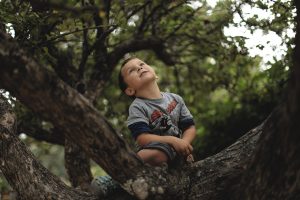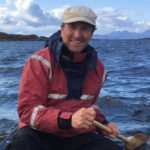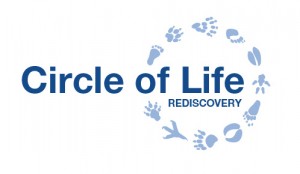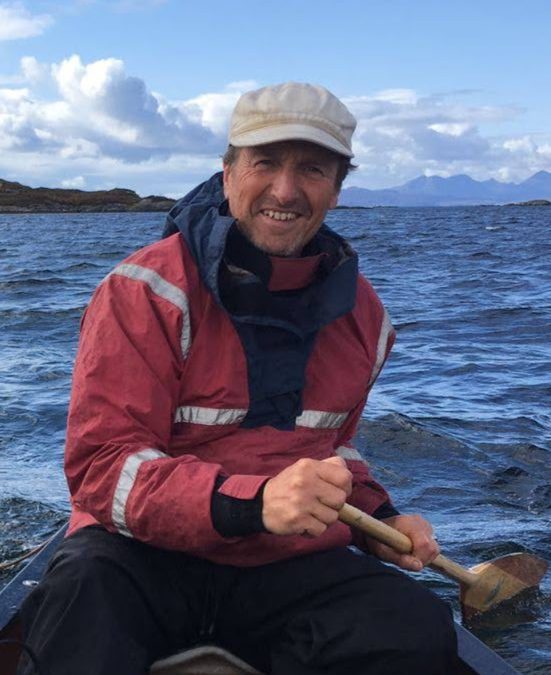Challenging Behaviour – how does the outdoors promote a balanced brain? This was a question put to me on a play structures course last weekend. I had been talking about challenging behaviour and the way ‘movement and making’ can help people of all ages regulate behaviour. So to the question. First what do I mean by balanced brain?
 I was working with a youngster this autumn, Jordan, who, providing he was succeeding with a task, was engaged and controlled…he had a penchant for sawing and took great pleasure in making clean cuts. However as soon as it got hard or he made a hash of sawing he would throw the saw down, stomp and withdraw shouting all his way to the gate of our forest school site.
I was working with a youngster this autumn, Jordan, who, providing he was succeeding with a task, was engaged and controlled…he had a penchant for sawing and took great pleasure in making clean cuts. However as soon as it got hard or he made a hash of sawing he would throw the saw down, stomp and withdraw shouting all his way to the gate of our forest school site.
This became a common occurrence. He would become, very quickly, dysregulated and have difficulty controlling his emotions and behaviours. He also developed the vocabulary and a basic understanding of psychology to try and wind up both his peers and teachers with some choice words!
He displayed a lack of balance. This type of behaviour could be indicative of a sensory processing disorder, ADHD, history of trauma or something else, he was seen as a ‘handful’ in school, where he was always in reactive state, whereas at forest school was more often ‘on task’.
What was happening in his brain at these outbursts was an imbalance of both brain chemicals and lower and higher order thinking. The more reflective brain was being dominated by the reactive brain. Neurologist Jak Panksepp would say the mid-brain pathways are not working in harmony, in this case a lack of control over his frustration saw him reacting with the ‘fast’ or ‘no I can’t do this’ brain….I was sure it wasn’t necessarily indicative of other conditions.
What was needed was time and practise at getting into the pre frontal cortex to recognise the emotions that threw Jordan out of balance and to think about self regulation. Jordan was 12 and at this age the pre frontal cortex…the higher order brain that thinks about feelings and helps regulate behaviour by bringing the brain into balance, is going through a developmental phase.
It is fine to feel frustration, in fact its good and healthy. It is how we respond to the emotion that’s important, not letting it call all the shots. In the moment what helps is ‘calming’ and an approach from us, the adult practitioners, who have a developed pre frontal cortex, that is non threatening, clear, calm, empathetic and soothing to help Jordan re-balance. What happens when his frustration kicks in is either Jordan’s hyper-arousal and he stomps in rage, or some people enter hypo-arousal where the freeze response kicks in and a rigid non-flexible adaptive behaviour is displayed.
What is happening when these two states are witnessed is the autonomic nervous system activating to release certain chemicals such as cortisol or adrenaline and neurotransmitters like noreprophine, opioids etc, that can lead to brain imbalance.
How does Forest School help bring the brain into balance? Daniel Siegel and Tina Bryson in their book ‘The Yes Brain Child’ propose through 7 daily ‘activities’ optimal brain matter is developed to create a healthy mind.
These include; sleep, physical time, focus time, down time, reflective time, connective time, play time.
While all these exist simultaneously at forest school (excepting sleep, unless you drop off in a hammock!) what the outdoors offers in abundance is physical and play time. One of the key mid brain systems Panksepp calls the PLAY system.
It has been shown that regular integrated play helps to stimulate both lower order thinking and higher order brain development, enabling a more integrated brain to develop. When in extended play mode, it could be through a hunting game or ‘playing with’ saws to see what happens when different techniques and materials are experimented with, then all kinds of higher order thinking and behaviours can develop.
These can include handling disappointment, sustaining attention, making sense of the world, overcoming fears of disappointment, tolerating frustration or coping with feelings of helplessness. Chemicals released through play can include serotonin, oxytocin, noreprophine all of which can counteract too many of the hyper and hypo-arousal chemicals.
The moving and physical activity at forest school beit running, dragging, swinging, climbing or sawing and chipping also helps both dissipate the reactive chemicals and stimulate resilient balanced brains.
When this is a regular programme eventually the combination of an empathic approach, plenty of integrated play, physical activity, daydreaming, a soothing green place and reflective time can see more balance and more pro social behaviour.
In the end Jordan will keep hold of the saw, regulate his behaviour and brain, discovering, through trying out how to make the most of technique and materials, the pleasure from ‘making’.
By Jon Cree

Jon will be in East Sussex in June and November this year with Circle of Life Rediscovery delivering the 3 day course: Working with Young People with Challenging Behaviour, in the Outdoors.
Working with Young People with Challenging Behaviour, in the Outdoors.
This course is aimed at any educator who feels they want to engage and work with students in the outdoors who may be reluctant learners (of any age).
This course will delve into:
- What challenges us as leaders in the outdoors
- Theory on challenging behaviour
- Up-to-date neural research; triggers and causes for challenging behaviour
- Ways of dealing with ‘real life’ scenarios in the outdoors
- De-escalation
- How to transfer outdoor strategies into an indoor and other settings – including looking at the validity of sanctions and rewards.
- Reviewing your own policies
Date: 17th, 18th & 19th June OR 20th, 21st & 22nd November 2019
Lead Facilitator: Jon Cree
Where: Mill Woods, East Sussex
Cost: £325 for the 3 day course, £55 for the Accreditation (optional). This Level 3 West Midlands Open College Network Accredited Course.
Time: 09.00 – 17.00.
Booking: Please book online here for the June course or online here for the November course.
More info: Please visit the website here for full details.
Transforming education, health and family through nature.
 Circle of Life Rediscovery provides exciting and highly beneficial nature-centred learning and therapeutic experiences for young people, adults, and families in Sussex woodlands, along with innovative continuing professional development for the health, well being and teaching professionals who are supporting them.
Circle of Life Rediscovery provides exciting and highly beneficial nature-centred learning and therapeutic experiences for young people, adults, and families in Sussex woodlands, along with innovative continuing professional development for the health, well being and teaching professionals who are supporting them.



